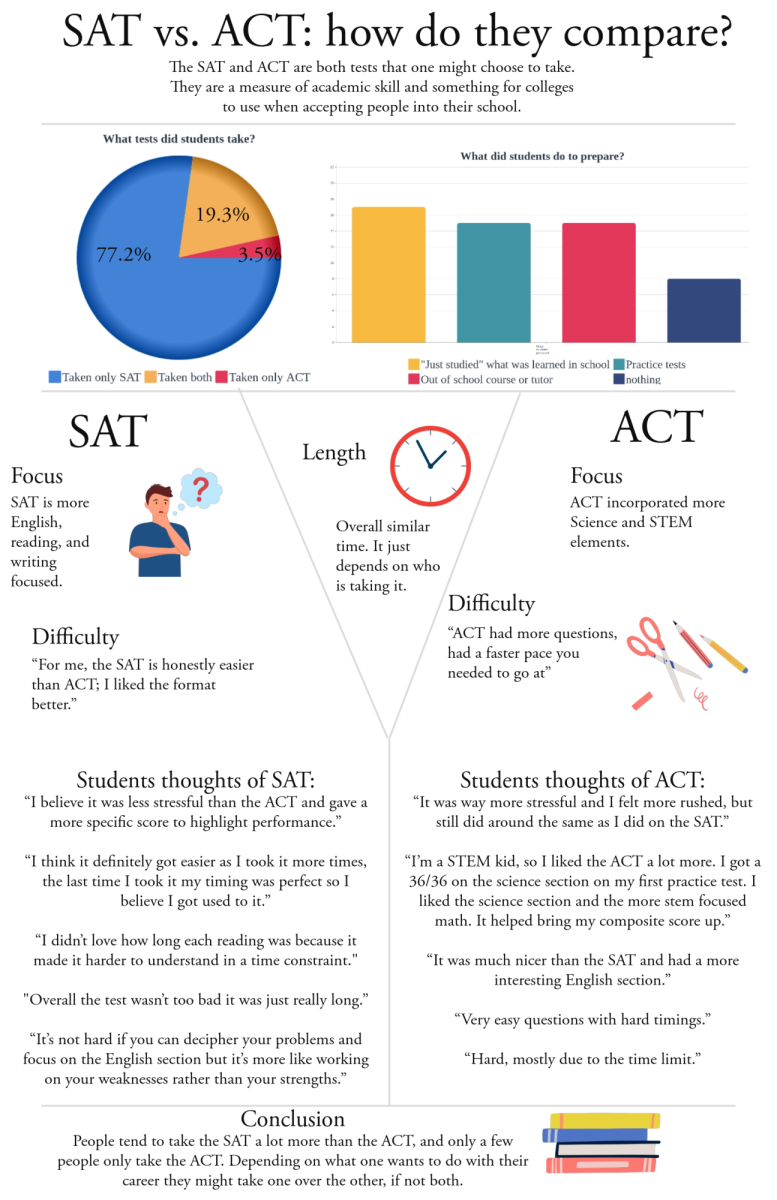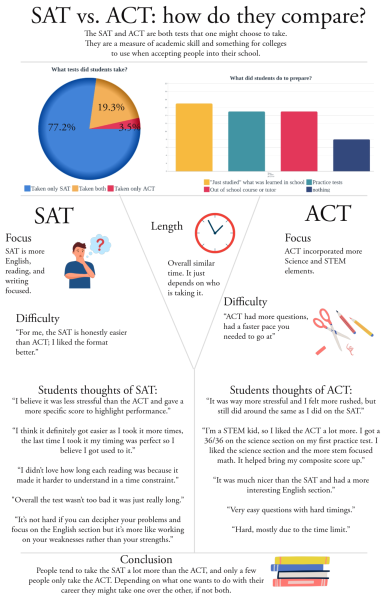Your phone might be ruining your life
Imagine being so addicted to something that it’s the first thing you reach for when you wake up in the morning and it’s the last thing you see before falling asleep. When in class or at work you can’t go a full hour without using it. For the majority of people, the thing they can’t go without using is their phone.
Twenty years ago people had landlines or basic mobile phones that were used for only texting and calling. Today, almost everyone has a phone, but phones could be affecting our lives negatively, and we don’t even realize it.
Technology and phones today have made life much easier. Hungry? Order food right from your phone. Need a ride somewhere? Get an Uber. Although phones seem to have many positives to them, there are just as many negatives.
Excessive phone use has led to sleep deficiency, lower concentration, stress, loneliness, insecurity, poor grades, impaired relationships and creativity blocks. It has aggravated ADD, depression and anxiety, and reduced cognition.
Phones are addictive, but why? What makes people look straight down at their phones as they’re walking across the street? Social media and the basic human need to interact and connect with others are a big play in this worldwide addiction.
From keeping track of friends’ lives to communicating globally, social media is addictive and like all other things, there’s a bad side to it with the side effects being even worse.
Social media has made people self absorbed and vain, constantly obsessing over how they look or how many likes and views they get on their posts. Many people try to show off how awesome their lives are and their cool new shiny possessions, but social media is extremely fake. People don’t show their real selves, only what they want you to see. This goes for people posting pictures of themselves either photoshopped or themselves posing half nude trying to get validation from friends and random people on the internet.
Social media has influenced people to be more apathetic and two-faced towards others and honestly it’s sad. It seems no one is real anymore, like there’s no real connection.
More people are becoming chronically online and their ability to have logical conversations is deteriorating such as calling out “problematic” behavior that others don’t think is an issue. One example, a user on TikTok shared their stance against irresponsible dog breeding and someone had replied in the comments, “So I guess this means you don’t support interracial human relationships either.” People’s perception of reality has become so skewed that they think comparing things that have no correlation with each other is sensible.
People who are chronically online tend to decide what they say and believe based on what is “acceptable” and “popular” at the time. Many people don’t even think for themselves anymore and they let their opinions form based on what others think and say because they either want to fit in with what people are doing or be noticed as a good person so they don’t want to be seen doing or saying something that isn’t “socially” okay.
Take cancel culture, for example. Most of the time people use cancel culture to ostracize individuals who say or have said or done things that they have deemed “offensive”, or simply because they have a different opinion than them. This cult-like behavior online has cost people their jobs, and many have received death threats or been doxxed. There is no allowance for critical thinking online anymore, it’s either you agree with the populous or you’re wrong and a terrible person.
Popular Youtuber Mr.Beast is widely known for his charitable actions such as starting a campaign called TeamSeas that raised more than $30 million to remove trash from the ocean. For a Youtube video, he had dropped a merchandise line to help fund the recreation of the Netflix show “Squid Game,” and his former fans suddenly wanted to cancel him for this because he was “wasting” his own money that “could have been used for charity.”
Many social media apps, like TikTok, have algorithms that only show you content based on what you interact with. So when people spend their time online only looking at content that feeds into their opinions and biases then this causes an environment where a person only sees content that coincides with their own beliefs and opinions. This can cause people to become close minded and not willing to hear the other side of debates and disregard others opinions that don’t match with their own beliefs.
So if all these negative things come from social media, why are people still using it? What makes social media so appealing? Well, needing validation from others is one of the answers. Social media takes advantage of the human need to interact with others, so when you get likes and comments on your posts online, it makes you feel good. For some however, the need to be seen/validated and receiving likes can become dangerous because this attention from people online can cause you to feel dependent on it.
Social media makes interaction with others effortless because all you need to do is pick up your phone to message friends. In small amounts, this isn’t a problem, but if you spend more time looking at a screen than interacting with people in person, it can affect your ability to make strong connections and friendships in real life. The lack of face-to-face interaction has also been proven to lead to depression and anxiety.
Another contributing factor as to why phones are so addictive is fear of missing out (FOMO). Constantly feeling like you have to show people what you’re doing or being afraid that you’re missing out on something is a common reason for people to be so glued to their phones.
Social media isn’t the only reason our phones are addictive, there’s actually something else that contributes to it and it’s your own brain mixed with a chemical called dopamine. When dopamine and social media come hand in hand it can become risky.
Dopamine is a neurotransmitter that makes you feel good. Our brains are designed to release dopamine when we do something pleasurable like eating or shopping. Our brains also dump dopamine whenever we get messages and notifications from our phones.
Our brain associates dopamine with phones, causing you to crave your phone.
Dopamine quickly metabolizes in your brain, leaving you craving more and more. Once the impact of the dopamine goes away, your brain tries to find ways to get that feeling back, and one of the easiest shortcuts for your brain to get a hit of dopamine is simply by picking up your phone.
The detrimental health issues from phones are extreme as well. Research shows that mental illness such as depression and anxiety has been on the rise among people who are dependent or addicted to their phones, especially among teens.
The overuse of phones creates a psychological dependency, and when people are separated from their phones, it can cause anxiety. People who use social media multiple times a day are more prone to reduced happiness, less life satisfaction, anxiety, and depression. Between 2010-2015 suicide rates went up 65%, the CDC believing this to be a direct effect from phone use.
So what can we do to stop ourselves from becoming prisoners to our own phones? Practice living in the moment by talking to people you’ve never interacted with before. Our phones are such big distractions in our lives that we often forget to just be. We need to realize that we don’t have to be constantly stimulated and instead realize that it’s okay to just sit and live in the now whether it’s something mundane or not because it’s a part of life.
Learn to appreciate the little things. Get a new hobby that allows you to learn and grow as a person. Hang out with your friends, have real meaningful conversations and laugh with each other. We need to set boundaries for ourselves and gain back control of how we live. Life is short and can be amazing if you let it, but not while wasting away behind a screen.
Your donation will support the student journalists of Loudoun County High School. Your contribution will allow us to purchase equipment and continue to print our issues for the students at our school.

Hannah Winegar is a senior at Loudoun County High School. This is her second year writing for the LCHS Newspaper.





















